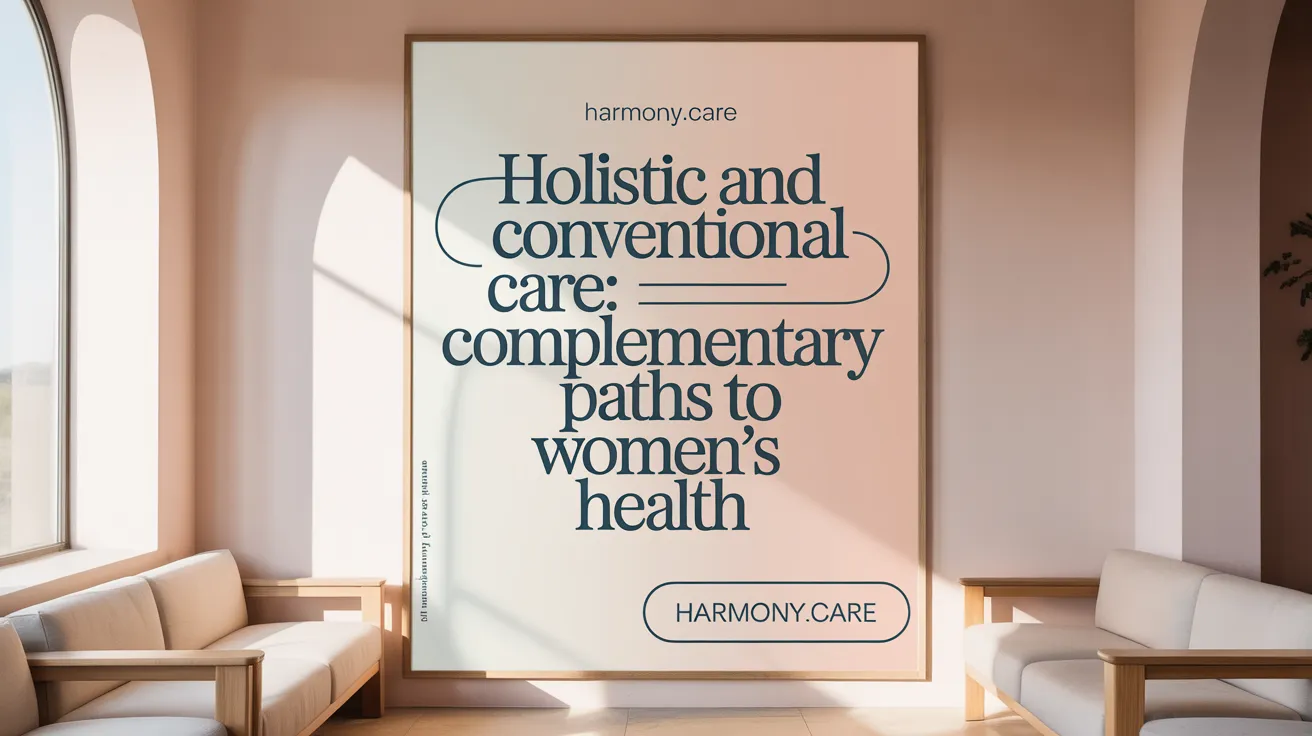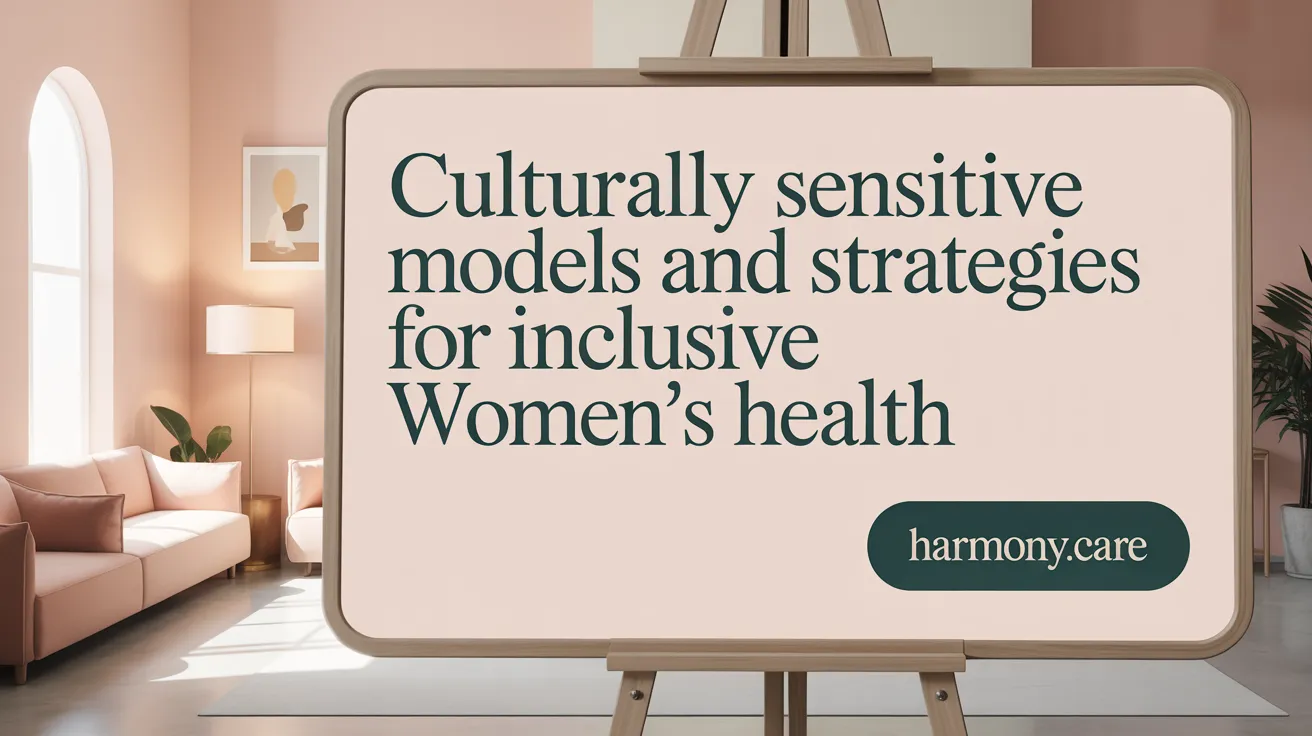Understanding Holistic Women's Health
Holistic health for women transcends conventional healthcare by integrating physical, emotional, mental, and reproductive aspects tailored to each stage of a woman's life. This comprehensive approach nurtures the mind, body, and spirit, acknowledging how interconnected these elements are in fostering well-being. From adolescence through motherhood and into post-menopause, the focus evolves to meet shifting needs, emphasizing prevention, empowerment, and personalized care. The following sections explore key principles, benefits, models, and practical strategies in women’s holistic health, illuminating a pathway to thriving rather than merely surviving.
Holistic Health Through the Life Stages: Tailored Approaches to Women's Wellness

What is holistic health and wellness specifically tailored to women at different life stages?
Holistic health and wellness for women are personalized approaches that address the unique needs of women at various phases of life, focusing on nurturing the body, mind, and spirit. This comprehensive perspective emphasizes more than just physical health; it encompasses emotional resilience, mental clarity, hormonal balance, and spiritual well-being.
Throughout different stages—adolescence, young adulthood, motherhood, perimenopause, menopause, and post-menopause—women experience shifting health priorities. In adolescence, the focus is on supporting growth, emotional stability, and establishing healthy habits. During young adulthood, maintaining fitness routines, balanced nutrition, and mental health practices become essential. Motherhood involves special attention to prenatal and postnatal nutrition, emotional shifts like postpartum depression, and gentle physical activity.
As women approach midlife, managing hormonal changes becomes vital, requiring herbal supplements, acupuncture, and diet adjustments. Later, in post-menopause, emphasis shifts to sustaining bone and cardiovascular health, emotional well-being, and lifestyle habits that promote vitality.
Prevention and early detection through routine screenings—such as mammograms, cervical exams, and bone density scans—are crucial at every stage. A holistic approach encourages women to stay proactive about their health, fostering self-awareness, resilience, and empowerment.
In essence, tailored holistic care adapts strategies to meet the evolving needs of women, supporting their well-being through all life transitions. It promotes a proactive, balanced lifestyle—integrating nutrition, physical activity, mental health, and social connections—to help women thrive at every age.
Benefits of Holistic Health Practices on Women's Physical and Emotional Well-being

How do holistic health practices benefit women's physical and emotional well-being?
Holistic health practices support women by addressing the complex connection between mind, body, and spirit. This interconnected approach enhances overall vitality by fostering balance in all areas of life.
By focusing on tailored nutrition and exercise routines, women can improve their reproductive health, hormone regulation, and immune function. Practices such as herbal supplements, acupuncture, and natural therapies help manage hormonal shifts during transitions like perimenopause and menopause.
Stress management is a vital part of holistic care. Techniques like mindfulness, meditation, yoga, and breathing exercises reduce anxiety and promote emotional stability. These methods also support better sleep and focus, vital for mental clarity and emotional resilience.
Emotional well-being is bolstered through counseling, energy healing practices like Reiki, and lifestyle adjustments that enhance joy, connection, and self-care. These strategies help women cope effectively with mental health challenges, including depression, anxiety, and burnout.
Overall, embracing these comprehensive approaches enables women to thrive physically and emotionally. They experience improved hormonal balance, stronger immunity, and a resilient mindset, across all stages of life.
| Aspect | Benefit | Additional Details |
|---|---|---|
| Physical Health | Improved nutrition & exercise | Supports reproductive health & hormonal balance |
| Mental Health | Stress reduction & focus | Lower anxiety, better sleep, emotional stability |
| Emotional Resilience | Counseling & energy healing | Better coping mechanisms for mental health challenges |
| Overall Wellness | Mind-body-spirit harmony | Enhances vitality and quality of life |
This holistic view recognizes the importance of preventive care, self-awareness, and empowerment, positioning women to thrive rather than just survive.
Core Principles and Approaches in Women’s Holistic Health
 A comprehensive approach to women’s health, often referred to as holistic women’s health, centers on treating the individual as a whole rather than merely addressing isolated symptoms. This model considers the interconnectedness of physical, emotional, mental, social, and reproductive factors that influence overall well-being.
A comprehensive approach to women’s health, often referred to as holistic women’s health, centers on treating the individual as a whole rather than merely addressing isolated symptoms. This model considers the interconnectedness of physical, emotional, mental, social, and reproductive factors that influence overall well-being.
One of the foundational principles is empowering women through education and active participation in their health decisions. This involves promoting preventive care, routine screenings, and lifestyle choices that support long-term health. Nutritional guidance, regular physical activity, stress reduction techniques like meditation and yoga, and adequate sleep are emphasized as vital components.
Physical therapy plays a significant role, especially when it adopts a sex- and gender-informed perspective. Such practices recognize biological differences and social determinants affecting women’s health. Therapies may include pelvic floor exercises, movement therapies, and other modalities that enhance physical resilience and address issues like incontinence, pelvic pain, or postnatal recovery.
Reproductive health remains central in holistic women’s health. It encompasses a range of concerns from family planning and contraception to managing conditions like polycystic ovary syndrome (PCOS), endometriosis, and menopause symptoms. Natural methods such as healthy eating, weight management, and physical activity are often prioritized alongside medical interventions when necessary.
Self-care and lifestyle integration are championed to foster emotional stability and resilience. Practices such as mindfulness, energy healing, and community engagement support mental health. Incorporating these activities into daily routines helps women manage stress, reduce anxiety, and promote a balanced life.
Patient empowerment is further reinforced through continuous education and shared decision-making. Women are encouraged to understand their unique health profiles and participate actively in crafting personalized health plans. This patient-centered approach respects cultural, spiritual, and social contexts, creating a supportive environment for sustainable wellness.
In essence, holistic women's health underscores the importance of viewing health as a dynamic interplay of physical, mental, and social elements. By integrating conventional medicine with natural therapies and lifestyle strategies, it strives to achieve not just symptom relief but enduring health and vitality.
Integrated Perspectives: Addressing the Full Spectrum of Women's Health
How does the integrated perspective on women's health address physical, emotional, reproductive, and mental aspects?
The holistic approach to women’s health considers every aspect—physical, emotional, reproductive, and mental—recognizing that these components are deeply interconnected.
Throughout a woman’s life, changes in one area can influence others. For example, hormonal fluctuations during menstruation, pregnancy, and menopause impact physical health and emotional well-being. Biological mechanisms like inflammation and endocrine shifts often link physical conditions, such as endometriosis or PCOS, with mental health issues like anxiety and depression.
Furthermore, social factors play a crucial role. Social determinants like gender inequality, stigma around mental health, and systemic barriers can affect emotional resilience and reproductive choices.
Effective women’s health care involves multidisciplinary strategies that are gender-sensitive and tailored to individual needs. It includes screenings for reproductive health issues, mental health assessment, and lifestyle interventions. Addressing conditions like postpartum depression, gynecological disorders, or chronic stress requires collaboration among healthcare professionals across fields.
This integrated mindset aims to promote lifelong wellness by proactively preventing health problems, managing chronic conditions naturally, and supporting mental resilience. It emphasizes that health is more than the absence of disease—it is a state of overall balance and harmony that sustains women through all life stages.
By incorporating personalized care plans, targeted therapies like herbal supplements or acupuncture, and support systems for social and emotional well-being, this approach helps women thrive physically, mentally, and emotionally. Ultimately, the goal is to empower women with the tools and knowledge to sustain their health, addressing issues at their root and fostering resilience.
Holistic vs. Conventional Healthcare: Understanding the Differences for Women

What are the main differences between holistic and conventional health care for women?
Holistic health care for women emphasizes treating the whole person—body, mind, spirit, and community—rather than just focusing on specific symptoms or diseases. This approach promotes personalized, preventive strategies that include lifestyle changes, mental health support, natural therapies like herbal medicine, acupuncture, and energy healing. It encourages women to participate proactively in their wellness journey and emphasizes ongoing self-awareness.
In contrast, conventional health care generally targets identifiable health issues with evidence-based methods such as pharmaceuticals, surgery, and diagnostic tests. It is often reactive, providing treatment after problems arise and concentrating on managing symptoms or curing diseases. This approach excels in acute care, emergency interventions, and standardized procedures based on clinical research.
Both systems can complement each other. Holistic practices, such as Traditional Chinese Medicine or Ayurveda, may be integrated into mainstream care to support overall well-being, although their scientific validation varies.
Most importantly, holistic care fosters a partnership between women and healthcare providers, emphasizing prevention and education. Conventional medicine usually adopts a more disease-centered, intervention-focused model. Recognizing and blending these approaches can offer women comprehensive support throughout all stages of life.
Search Query and Further Reading
For more insights on these differences, search for "Differences between holistic and conventional healthcare in women's health." This will lead you to resources comparing personalized wellness strategies with traditional medical treatments, highlighting how each approach serves women's diverse health needs.
Models, Strategies, and Innovations for Culturally Sensitive Holistic Women's Health

Which models, theories, and frameworks are applicable to women's holistic health across diverse cultural and gender-specific contexts?
A wide variety of models and frameworks inform holistic women’s health, emphasizing the interconnectedness of physical, mental, social, and spiritual well-being. Prominent among these are the biopsychosocial model and integrative health frameworks, which prioritize treating the whole person rather than isolated symptoms. However, many of these originate from Western perspectives and may require adaptation to suit different cultural norms and social contexts.
Culturally sensitive care models seek to honor diverse beliefs, customs, and social structures, ensuring healthcare delivery aligns with women’s lived experiences worldwide. Intersectionality frameworks emphasize how social identities such as race, class, gender, and ethnicity influence health behaviors and outcomes, advocating for equitable, inclusive approaches. Theories like Empowerment Theory and frameworks focusing on reproductive rights and gender norms emphasize women's autonomy and decision-making capacity.
Dynamic, multilevel models incorporating social cognitive and health belief theories offer comprehensive understanding in diverse settings, enabling tailored interventions. Ultimately, developing culturally inclusive and gender-sensitive models is essential to address the unique health challenges faced by women worldwide.
What strategies promote proactive health, preventive care, and overall wellness from a holistic perspective for women?
Women’s health benefits greatly from proactive measures and preventive care rooted in a holistic approach. Regular physical activity—such as cardio, strength training, and weight-bearing exercises—supports cardiovascular health, bone density, and emotional stability, adaptable to each life stage.
An emphasis on balanced, nutrient-rich diets ensures optimal hormonal functioning, energy, and tissue maintenance. Consuming plenty of fruits, vegetables, whole grains, and lean proteins helps meet vital nutritional needs. Stress reduction practices like mindfulness, yoga, meditation, and journaling bolster mental resilience and emotional well-being.
Routine health screenings—including breast, cervical, and bone density tests—allow early detection and management of potential issues. Mental health support, access to counseling, and fostering social connections are also crucial for overall wellness. By combining these strategies, women can empower themselves to take control of their health, promoting longevity and quality of life at every stage.
Empowering Women Through Holistic Wellness
Holistic health embodies a transformative journey for women, championing an interconnected view of physical, emotional, reproductive, and mental wellness. By embracing tailored strategies aligned to each life stage and integrating culturally sensitive models and empowering practices, women can attain not just the absence of illness but optimal vitality and resilience. This approach fosters long-term prevention, self-awareness, and empowerment, honoring the whole person beyond isolated symptoms. As awareness and acceptance of holistic women's health grow, there lies vast potential to revolutionize healthcare delivery, enrich quality of life, and support women in thriving across their entire lifespan.
References
- Caring for Women at Every Stage of Life: Holistic Health ...
- How Holistic Care Improves Mental, Emotional, and Physical ...
- 7 Invaluable Benefits of Our Natural Women's Health ...
- Women health: holistic view - PMC
- Holistic Approach to Women's Health
- The Evolution of Wellness Models
- Empowering Women to Be Proactive in their Health
- The Links Between Physical and Mental Health Shape ...
- Complementary and Alternative Healthcare: Is it Evidence- ...
- Explained: Holistic vs Modern Western Medicine
